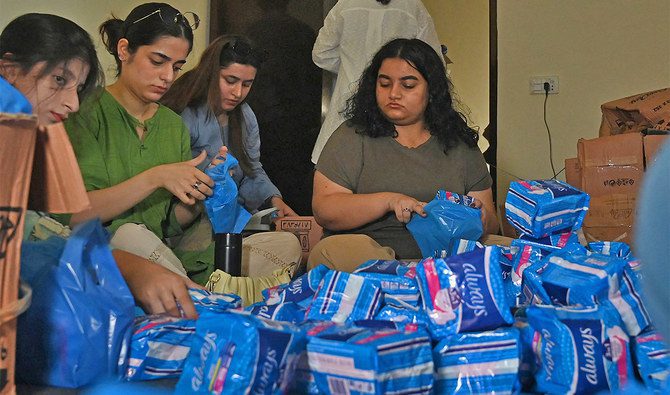There is a curtain of silence surrounding a common and natural occurrence in Pakistani society, which is menstruation. In Pakistan, girls are not only denied access to vital information about their bodies but also detrimental taboos related to menstruation health education. It’s time to end this silence, promote education on period hygiene, and guarantee that girls all throughout the nation have access to sanitary goods.
Like many other countries, Pakistan has long struggled with cultural taboos related to menstruation. The stigma and secrecy around menstrual health frequently result in stigmatisation and false information. This cultural silence prevents the development of positive attitudes about menstruation and puts up a barrier to candid conversations about reproductive health.

Breaking the taboo around menstruation health is the first step towards empowerment. Menstruation de-stigmatization efforts must to be rolled out in homes, communities, and educational institutions. It is possible to dispel myths, dispel prejudices, and foster an atmosphere where girls feel free to talk about their bodies without feeling ashamed or afraid by having frank and honest discussions about menstruation.
A comprehensive teaching approach is necessary to address taboos surrounding menstruation health. Age-appropriate menstrual health education should be incorporated into school curricula to give girls accurate information about their bodies and the changes they will undergo. We can help bring about a societal shift that acknowledges the normal and healthy aspects of this biological process by normalising conversations about menstruation.
Not only should fallacies about menstrual hygiene be debunked, but females should also be taught the value of practicing proper cleanliness throughout their periods. It’s important to teach girls the value of cleanliness and good sanitation practices because poor hygiene can result in a number of health problems. Beyond the classroom, females in underprivileged neighbourhoods and rural areas should receive this education.
Another essential component of teaching on menstrual health is access to sanitary supplies. Girls in many parts of Pakistan struggle to get period products that are both economical and clean. Access to reusable and environmentally friendly sanitary products is a key component of initiatives aimed at preventing girls from being denied an education because they lack menstruation hygiene supplies.
Governmental agencies, non-governmental organisations, and neighbourhood groups ought to work together to create initiatives that provide sanitary goods to communities and schools. These programmes can also teach girls about menstruation product safety—how to use and dispose of them properly, and how important it is to choose products that are safe for both the environment and their bodies.
Innovative approaches like community-based seminars, awareness campaigns, and collaborations with nearby health facilities can fill the gap in rural areas where resources may be scarce. We can create a culture that values menstruation health as a vital component of overall wellbeing by including the community.

It’s critical to understand that menstrual health education aims to empower girls by addressing their feelings of empowerment in addition to the practical issues of menstruation. Girls can better pursue their education and reach their full potential when they have an understanding of their bodies, have access to resources, and are not restricted by cultural taboos.
To sum up, educating girls in Pakistan about menstruation health is essential to breaking down social stigmas, encouraging good hygiene, and guaranteeing that they have access to sanitary goods. By ending the taboo around menstruation, we can give girls the confidence and dignity to handle this normal part of life. We can build a future where menstruation is accepted as a normal and healthy aspect of every girl’s journey to maturity via activism, education, and community involvement.

